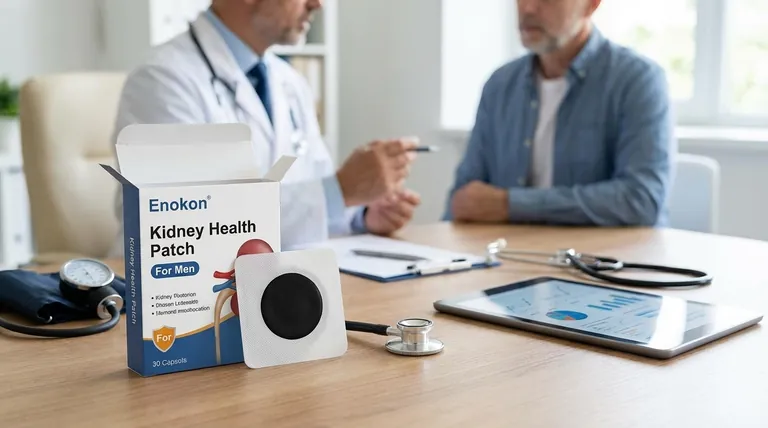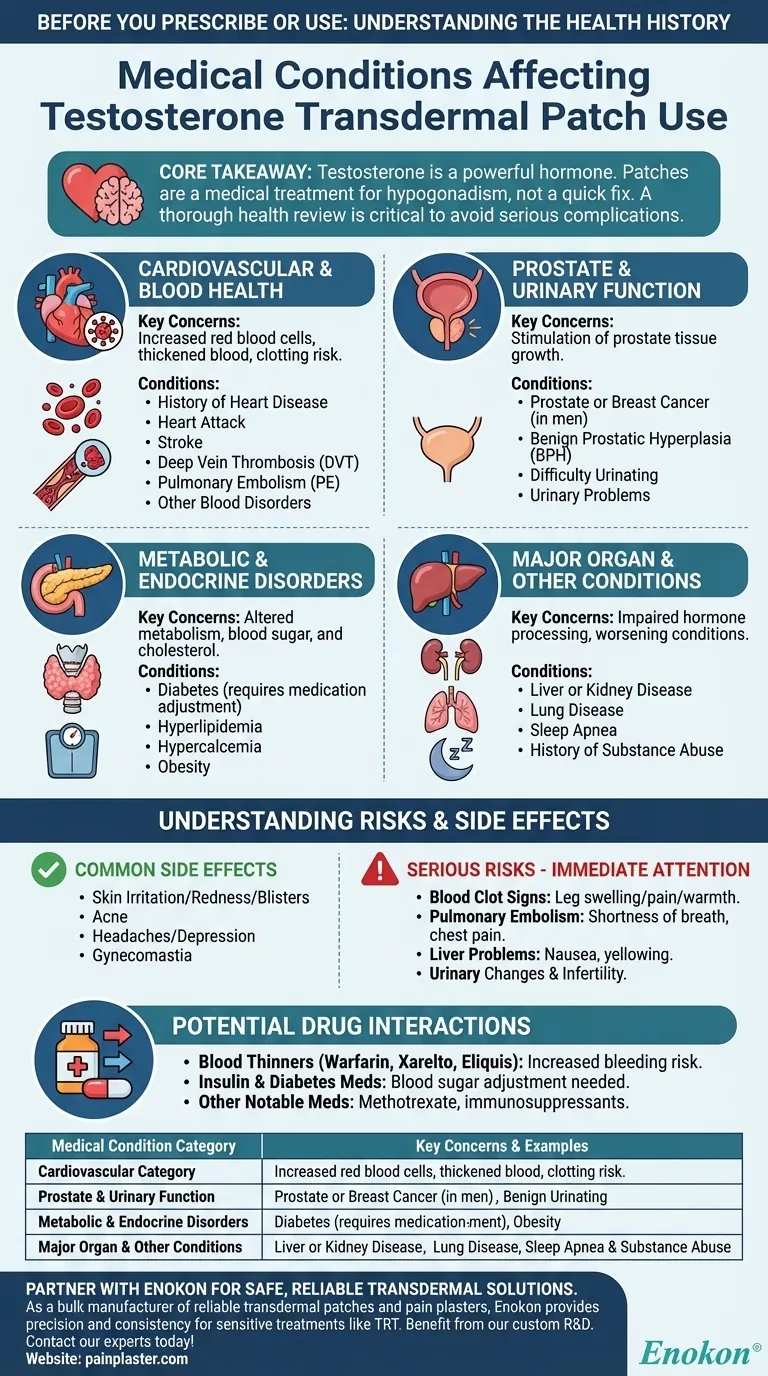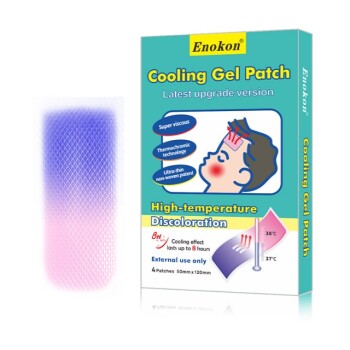Before using testosterone transdermal patches, it is crucial to understand that numerous pre-existing medical conditions can significantly impact their safety and effectiveness. A wide range of issues, particularly those related to cardiovascular health, prostate function, and metabolic disorders, require careful evaluation by a physician before initiating this therapy.
The core takeaway is that testosterone is a powerful hormone that interacts with nearly every system in the body. Therefore, using testosterone patches is not a simple solution for low energy or libido; it is a medical treatment that demands a thorough review of your complete health history to avoid serious complications.

Why a Thorough Medical History is Critical
Testosterone replacement therapy is intended for men with clinically diagnosed hypogonadism, a condition where the body cannot produce enough testosterone due to problems with the testicles, pituitary gland, or hypothalamus. Because testosterone influences so many bodily functions, introducing it externally can exacerbate underlying health problems.
Cardiovascular and Blood-Related Conditions
Testosterone can increase the production of red blood cells. While this can be beneficial in some cases, it can also thicken the blood, raising the risk of clotting.
This is a significant concern for individuals with a history of:
- Heart disease or heart attack
- Stroke
- Blood clotting problems (like deep vein thrombosis or pulmonary embolism)
- Other blood disorders
Prostate and Urinary Health
Testosterone can stimulate the growth of prostate tissue. This is a primary area of concern, especially for older men.
You must discuss any history of the following with your doctor:
- Prostate cancer or breast cancer (in men)
- Enlarged prostate, also known as benign prostatic hyperplasia (BPH)
- Urinary problems, such as difficulty urinating
Metabolic and Endocrine Disorders
Hormone levels are tightly interconnected with your metabolism. Altering testosterone can have a cascading effect on other systems.
Key conditions to review include:
- Diabetes: Testosterone can affect blood sugar levels, potentially requiring adjustments to insulin or other diabetes medications.
- Hyperlipidemia: The therapy can impact cholesterol levels.
- Hypercalcemia: High levels of calcium in the blood can be a contraindication.
- Obesity: This is often linked to other risk factors and can affect how the body processes testosterone.
Major Organ Function and Other Conditions
Your liver and kidneys are essential for processing hormones and medications. Impaired function can lead to unsafe levels of testosterone in your system.
Other significant conditions include:
- Liver or kidney disease
- Lung disease
- Sleep apnea: Testosterone therapy may worsen this condition in some individuals.
- History of drug abuse: Due to the potential for misuse, a history of substance abuse requires careful consideration.
Understanding the Trade-offs and Side Effects
Even for appropriate candidates, testosterone therapy involves balancing potential benefits with known risks and side effects. Open communication with your healthcare provider about any new symptoms is essential.
Common Side Effects
These are relatively frequent but typically manageable. They include:
- Skin irritation, redness, or blisters at the patch site
- Acne
- Headaches or depression
- Enlarged or tender breasts (gynecomastia)
Serious Health Risks
These symptoms require immediate medical attention as they can indicate life-threatening complications.
- Signs of a blood clot: Swelling, pain, or warmth in the leg.
- Signs of a pulmonary embolism: Shortness of breath or sudden chest pain.
- Signs of liver problems: Nausea, upper stomach pain, yellowing skin or eyes.
- Urinary changes: Increased urination, difficulty starting to urinate, or a weak stream.
- Reproductive health: Testosterone therapy can lead to decreased sperm production and infertility.
Potential Drug Interactions to Discuss
Testosterone can interact with other medications, altering their effects and increasing the risk of adverse events. It is vital to provide your doctor with a complete list of all medicines you take.
Blood Thinners (Anticoagulants)
This is a critical interaction. Testosterone can increase the effect of drugs like warfarin, rivaroxaban (Xarelto), and apixaban (Eliquis), raising the risk of dangerous bleeding.
Insulin and Diabetes Medications
As mentioned, testosterone can impact blood glucose control. Your doctor may need to adjust the dosage of your insulin or other diabetes drugs to prevent hypoglycemia.
Other Notable Medications
Be sure to discuss the use of other drugs, including methotrexate, bupropion, and certain immunosuppressants, as interactions may require close monitoring or alternative treatment plans.
Making an Informed Decision with Your Doctor
The decision to use testosterone transdermal patches should be a collaborative one, based on confirmed medical need and a clear understanding of your personal health profile.
- If your primary focus is addressing symptoms with a history of heart disease or blood clots: You must prioritize rigorous cardiovascular monitoring before and during treatment.
- If your primary focus is on libido or muscle mass with known prostate concerns: Regular prostate-specific antigen (PSA) tests and digital rectal exams are non-negotiable.
- If your primary focus is managing hypogonadism while living with diabetes: Be prepared for frequent blood sugar monitoring and potential adjustments to your diabetes management plan.
Ultimately, proactive and honest communication with your healthcare provider is the key to ensuring safe and effective treatment.
Summary Table:
| Medical Condition Category | Key Concerns & Examples |
|---|---|
| Cardiovascular & Blood | Increased risk of blood clots; history of heart disease, stroke, or clotting disorders. |
| Prostate & Urinary Health | Stimulation of prostate tissue; history of prostate cancer, BPH, or urinary problems. |
| Metabolic & Endocrine | Altered blood sugar and cholesterol; diabetes, hyperlipidemia, or obesity. |
| Major Organ Function | Impaired processing of testosterone; liver or kidney disease, sleep apnea. |
Partner with Enokon for Safe, Reliable Transdermal Solutions
Navigating the complexities of testosterone therapy requires high-quality, dependable delivery systems. As a bulk manufacturer of reliable transdermal patches and pain plasters, Enokon provides healthcare and pharmaceutical distributors and brands with the precision and consistency needed for sensitive treatments like TRT.
Benefit from our technical expertise for custom R&D and development, ensuring your products meet the highest safety and efficacy standards for patients with diverse medical histories.
Contact our experts today to discuss how our transdermal patches can support your therapeutic goals.
Visual Guide

Related Products
- Prostate Pain Kidney Health Care Patch for Men
- Far Infrared Heat Pain Relief Patches Transdermal Patches
- Medical Cooling Gel Patches for Fever Cooling Patches
- Heating Pain Relief Patches for Menstrual Cramps
- Capsaicin Chili Medicated Pain Relief Patches
People Also Ask
- How often should testosterone patches be applied? Daily Dosage & Best Practices
- What should be done if a testosterone patch is missed or falls off? Follow these simple timing rules for safety and consistency.
- What is the purpose of testosterone patches? A Steady Solution for Low Testosterone
- What should be done in case of a testosterone patch overdose? A Step-by-Step Emergency Guide
- What lifestyle factors should be considered when choosing between testosterone patches and injections? Find Your Best Fit














